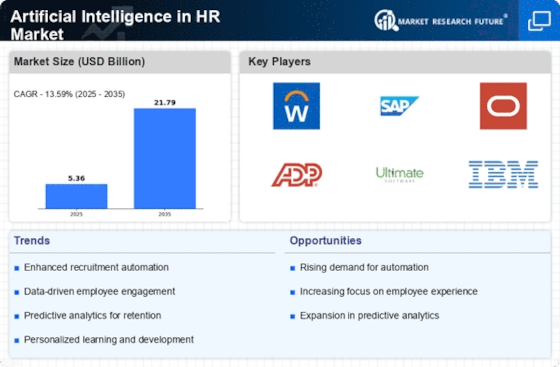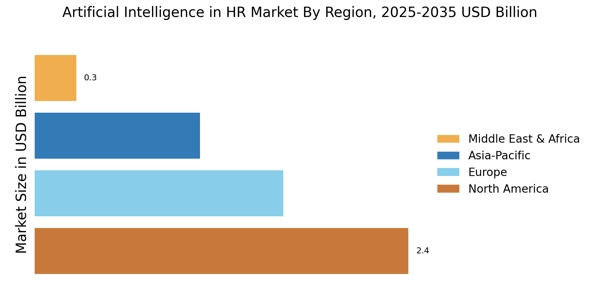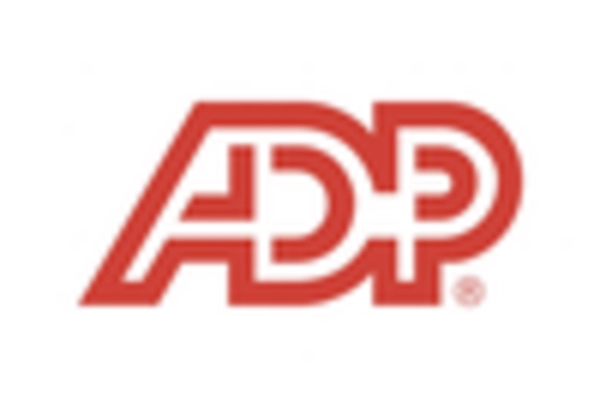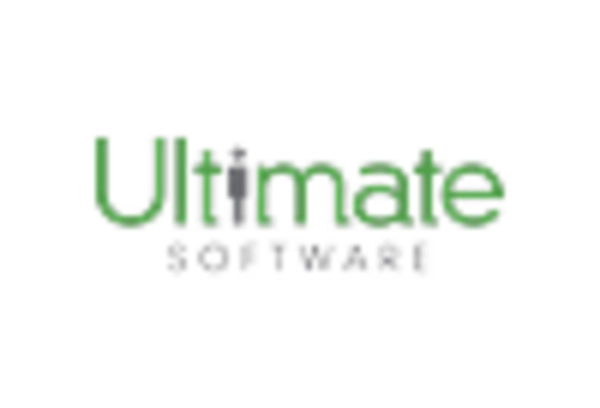Data-Driven Decision Making
Data-driven decision making is emerging as a crucial driver in the Artificial Intelligence in HR Market. Organizations are harnessing AI to analyze vast amounts of employee data, enabling HR professionals to make informed decisions regarding talent acquisition, performance management, and workforce planning. The ability to derive actionable insights from data enhances strategic planning and resource allocation. Reports indicate that companies utilizing data analytics in HR processes experience a 15% improvement in hiring accuracy. This trend underscores the importance of integrating AI into HR practices, as organizations seek to leverage data for competitive advantage.
Scalability of HR Solutions
The scalability of HR solutions powered by artificial intelligence is a vital driver in the Artificial Intelligence in HR Market. As organizations expand, the need for scalable HR systems becomes paramount. AI technologies offer the flexibility to adapt to changing workforce demands, enabling HR departments to manage larger teams efficiently. This scalability is particularly beneficial for companies experiencing rapid growth or those with fluctuating staffing needs. Market analysis indicates that the adoption of scalable AI-driven HR solutions is projected to increase by 25% over the next five years. This trend highlights the importance of AI in facilitating organizational agility and responsiveness.
Enhanced Employee Experience
The emphasis on enhancing employee experience is a significant driver within the Artificial Intelligence in HR Market. Organizations are increasingly leveraging AI tools to personalize employee interactions, from onboarding to performance evaluations. AI-driven platforms can analyze employee feedback and engagement levels, enabling HR teams to tailor initiatives that foster a positive workplace culture. Recent studies suggest that companies focusing on employee experience see a 20% increase in retention rates. This focus on employee satisfaction is likely to propel the adoption of AI technologies, as businesses recognize the correlation between a positive employee experience and overall organizational success.
Automation of Administrative Tasks
The automation of administrative tasks is a pivotal driver in the Artificial Intelligence in HR Market. Organizations increasingly adopt AI technologies to streamline repetitive tasks such as payroll processing, benefits administration, and employee onboarding. This shift not only enhances operational efficiency but also allows HR professionals to focus on strategic initiatives. According to recent data, companies utilizing AI for administrative functions report a 30% reduction in time spent on these tasks. As a result, the demand for AI-driven solutions continues to rise, with the market projected to reach USD 10 billion by 2026. This trend indicates a growing recognition of AI's potential to transform traditional HR practices.
Diversity and Inclusion Initiatives
Diversity and inclusion initiatives are increasingly influencing the Artificial Intelligence in HR Market. Organizations are utilizing AI tools to mitigate bias in recruitment and promote a more inclusive workplace. AI algorithms can analyze job descriptions and candidate profiles to ensure equitable hiring practices. This focus on diversity is not merely a compliance issue; it is a strategic imperative that enhances innovation and performance. Data suggests that companies with diverse teams are 35% more likely to outperform their competitors. As organizations prioritize diversity, the demand for AI solutions that support these initiatives is expected to grow significantly.

















